Being enthusiastic about population genetics means that I regularly see people with false opinions on genetics, especially since it is an extremely politically loaded subject. It’s an interesting phenomenon, because a lot of these views weren’t even taught to them. It was pure inference. For example, people assume that, because Etruscans spoke an entirely different language from the Indo-European Italic tribes, they must have been genetically different. In reality, Etruscans are genetically about the same as other inhabitants of Iron Age Italy. Etruscans also share a similar Y-DNA profile as Italo-Celtic peoples, with a prevalence of Haplogroup R1b. It’s somewhat surprising.
But, I’m not talking about Etruscans today. Today I’m talking about the epicenter of bad folk genomics, which is Anatolia and the Balkans. This is not surprising. There are very strong political motivations here for identifying groups which are unalike together, or identifying like groups apart. And there is an extremely convoluted historical element. This region was populated by a wide variety of groups during the Iron Age. During High Antiquity much of these groups were Latinized or Hellenized. Then, during the middle ages, there were massive invasions of barbarians into these regions.
Anyways, let’s start off with the Turks. And I’m going to put it quite simply. The Turks are not just assimilated Greeks. And at the very least, Western and Central Turks are not just assimilated locals. Are Turks less than half Turkic? Yes, but there is a significant Turkic component in there. European Turks also have a Turkic component, albeit European Turks seem to be within European variation otherwise. This suggests that Turks in Europe were still highly Turkic, and had not previously mixed with Anatolians to a large degree.
The mistake with Turks people often make is assuming that “East Eurasian” means “Turkic”. Turkish people don’t descend from some pristine Altai Turks, they descend from Oghuz Turks who invaded Anatolia from modern day Uzbekistan. Yes, Turks are only in total around 10-15% East Eurasian on average, but you should be modeling Turks with groups more representative of the Seljuk Invaders.
Using medieval Turks (I believe the first one uses Turks from Kazakhstan, the second uses early Ottomans, which explains the higher rates of the second one) you can see that Anatolian Turks do have notable Turkic admixture, especially in the western regions.
When using modern Turkmens, who are perhaps the most analogous to ancient Seljuks, you can derive similar degrees of Turkic DNA. Here’s a quick model I whipped up on Vahaduo using G25.
In fact, Anatolian Turks seem to make up the end of a cline stretching into Siberia. Unsurprisingly, they are closest to Turkmens.
Anyways, there are a few things which stand out in that Vahaduo screenshot. Mainly, that Turks don’t have a great deal of Greek ancestry at all. It peaks in Balıkesir Province (among Asiatic Turks), but since Turkic ancestry is highest in Western Anatolia, the areas which are also highest in Greek ancestry have less Greek ancestry than they do Turkish ancestry.
But why is this the case, if Anatolia was Greek prior to the Seljuk conquest? Well, to put it bluntly, there is a big difference between speaking Greek, and being of predominantly Greek ancestry. In fact, with the exception of Ionian Greeks, Anatolian Greeks seem to be less Greek than Turks are Turkish.
Greeks in general, seem to be not that much more Greek than Turks are Turkic, but G25 in my experience is not reliable for Mediterranean models. The use of more “extreme” components” seems to absorb the influence of less extreme components. But, it’s pretty obvious from it that mainland Greeks have little to no Turkish ancestry and are by no means “Turkish rapebabies”. The modern genetics of Greeks were formed entirely by the high middle ages, as a combination of Slavic admixture and Syro-Anatolian admixture from Roman and Byzantine times. Turks may have had some more influence on Island Greeks.
Which brings me to my second point, the Macedonian issue. Were ancient Macedonians Greek? Who gets to call themselves Macedonian?
Well, we don’t have any ancient Macedonian DNA, so it’s impossible to know for sure. But somehow I doubt that they were Slavic halfbreeds like modern “North Macedonians”. Macedonian Greeks didn’t even extend into most of modern Macedonia until late into their history.
We do have some Paeonian samples, and we have some samples from Hellenized settlements in Paeonia, but these samples are genetically about the same as Paeonian samples. So it’s not very clear if these are people of any Macedonian ancestry. It’s possible that this represents the northernmost part of an incomplete Greek north-south cline. The earliest Greeks can be represented by Helladic Greeks from Logkas. These samples have more than double the Steppe ancestry that our Mycenaean samples have. If I remember correctly we have some other Helladic samples which are similar, so we have more than just this. But anyways, these Greeks are very genetically similar to the aforementioned classical samples from this sort of frontier area between Macedonia and Paeonia.
Paeonians are largely considered to be barbarians, although are sometimes ascribed Greek origins through the line of Endymion. Macedonians seemed to consider themselves Greeks, but some Greeks contested the Greekness of Macedonians. From Herodotus:
“for when Alexander [The Philhellene, not The Great] chose to contend and entered the lists for that purpose, the Greeks who were to run against him wanted to bar him from the race, saying that the contest should be for Greeks and not for foreigners. Alexander, however, proving himself to be an Argive, was judged to be a Greek. He accordingly competed in the furlong race and tied step for first place. This, then, is approximately what happened.”
There is a lot more sources on the ancient debate judging the Greekness of Macedonians, but it’s not really that important. Macedonians were something akin to Greeks as, I suppose, Macedonian Slavs are to Bulgarians. It’s understandable why in the finicky ethnic environment of the Balkans, Macedonian Slavs are quick to question the Greekness of ancient Macedonians. However, how this translates to Macedonian Slavs being Macedonian, I do not know.
And again, Macedonian Greeks in this day and age have a great deal of Slavic ancestry. Not as much as Macedonians, but a substantial amount.
The Slavic invasion swamped most of Greece, penetrating down to the southern coast of the Peloponnese. The Byzantines were only able to hold onto urban and coastal areas, but gradually pushed back into inland Greece. The Slavs would make more intrusions into Northern Greece afterwards. The Bulgars occupied Northern Greece for a while. And while Bulgars were not Slavs, they were by this time ruling over a predominantly Slavic population and relied on Slavs for their infantry. The Serbs invaded in the 14th century and conquered, for a brief time, most of Greece. And of course, you have to consider the effects of Slavic migration within the Byzantine empire.
So, Macedonian Slavs are not Macedonians, but Macedonian Greeks aren’t particularly Macedonian either. Albeit, there’s no way to know exactly how Macedonian they are until we get some clearly Macedonian samples. I consider Alexander the Great and his people to be Greek. Because Macedonians spoke a language closest related to Greek and potentially just a very rustic dialect of Doric, and because Alexander and Philip were heavily acculturated into southern Greek high culture. By this point in time only rural Macedonians were still speaking Macedonian. Alexander spoke Attic Greek. Macedonians seemed to all identify as Greeks as well, and other Greeks seemed to consider them at least partially Greek. A lot of the claims that Macedonians weren’t Greek seem to be from times where denying the Greekness of Macedonians was politically expedient.
Alright, those are the two big ones. Let’s do some lightning rounds for the Balkans.
Albanians are Turks: Even more false than the “Greeks are Turks” claim. Albanians are pretty obviously a mixture of Illyrians, Greeks, and Slavs.
Bulgarians are Turks: This is also false. Bulgarians are not Bulgars, Bulgars made up a small elite and were themselves probably somewhat heterogenous. This is like saying Germans are Huns. Albeit, Bulgarians do have a bit of East Asian ancestry from several invasions from the east, but it’s still very marginal.
Hungarians are Siberian: While the Hungarian language is Uralic and comes from the Volga-Ural region, the Magyars comprised a tiny minority of the Hungarian population. It isn’t even clear if the tiny bit of East Asian in Hungarians today is from them, or if it is from other steppe invasions. Although, it’s worth mentioning that the Magyars, like other Steppe nomads, had substantial European ancestry by the time they entered Europe. So it is certainly possible that while the total East Asian ancestry is negligible, the Magyar ancestry is higher. But I am skeptical. I am skeptical because it would be impossible to distinguish the Magyar ancestry from other post-IA Steppe Ancestry.
Romanians are Gypsies: Okay now I’m starting to get annoyed! ROMANIANS ARE NOT FREAKING GYPSIES!!!!!!!!!! If Romanians were part Gypsy then they’d have South Asian ancestry, and they don’t! So SHUT UP BE4 I PUT MY FUT IN YOUR ASS!!!
Armenians are like European: They’re not. They’re like Kurds or some shit lol. Armenians are not White, sorry. I don’t even have any particular dislike for Armenians. They used to be whiter. But these days they’re pretty typical for middle east. Sorry lol. Heheh.




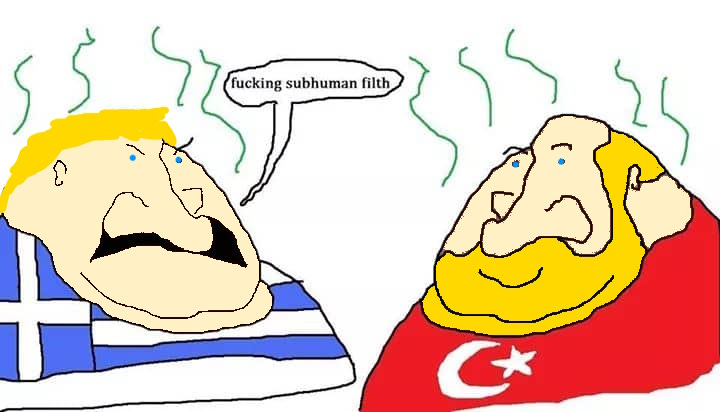
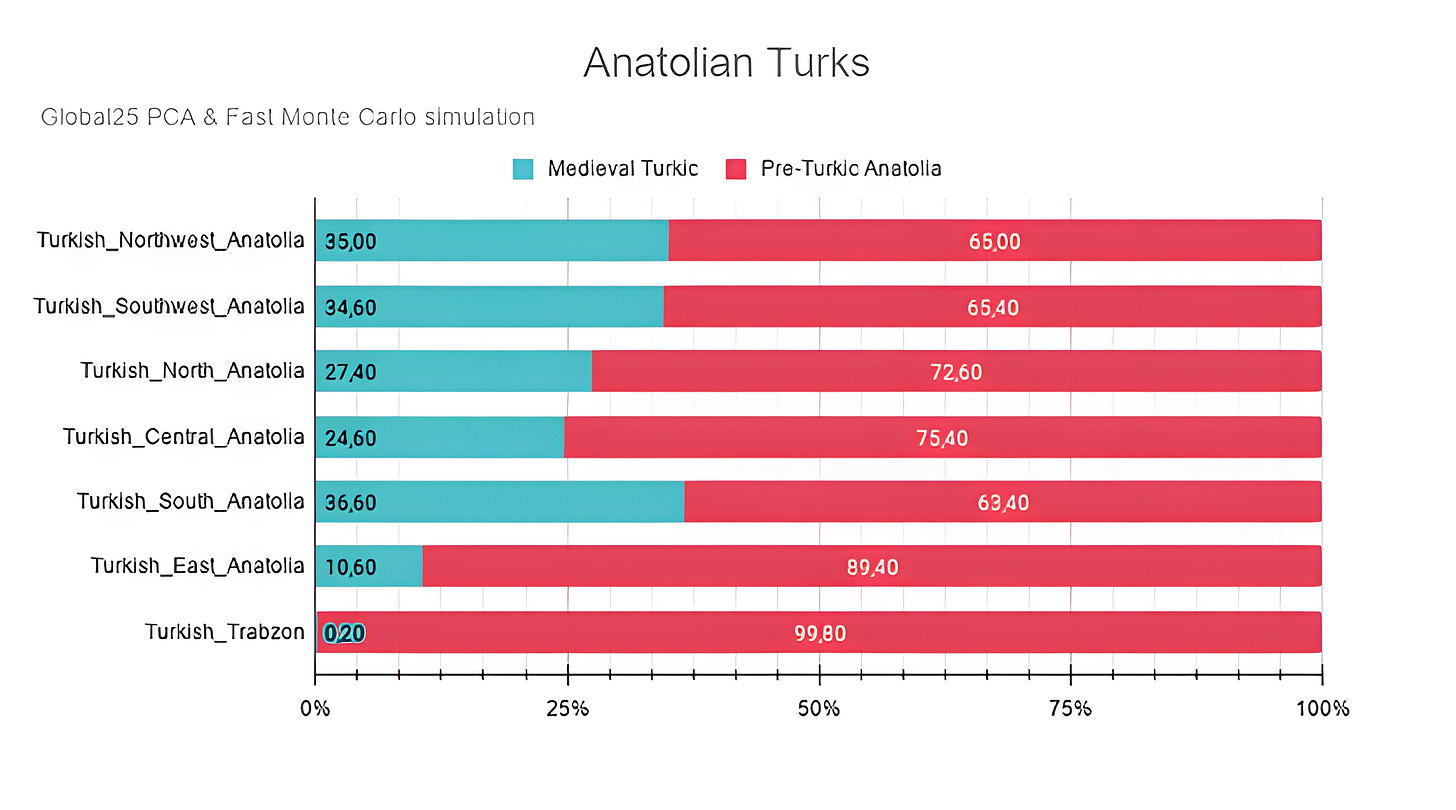


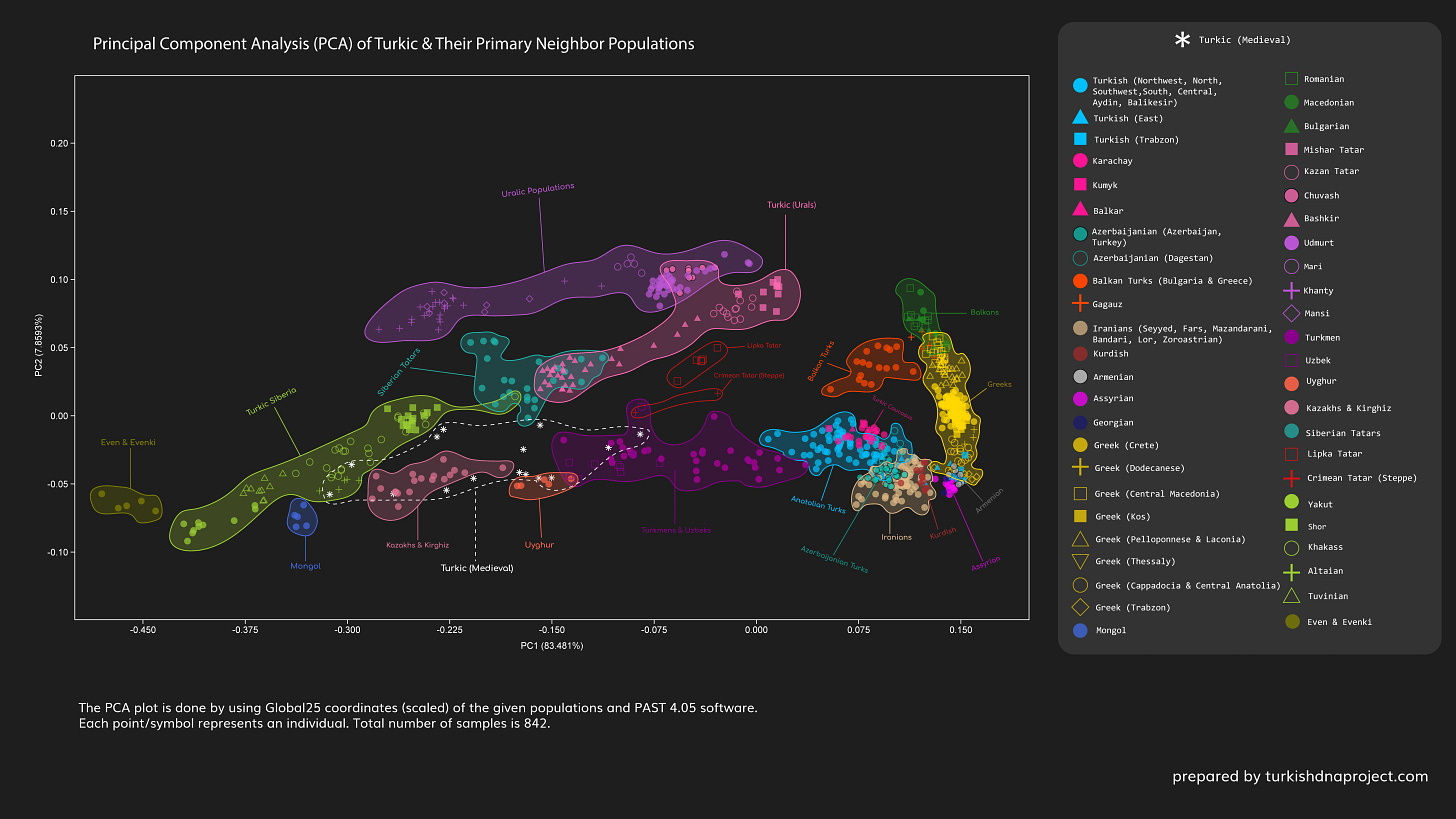

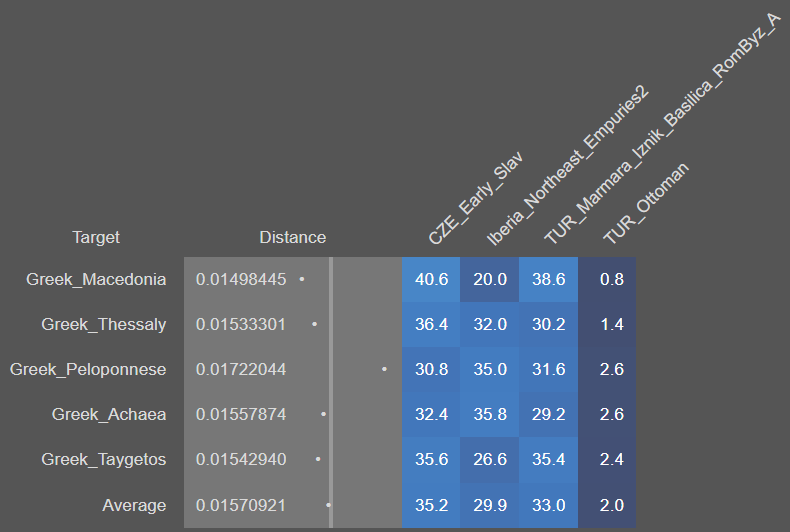
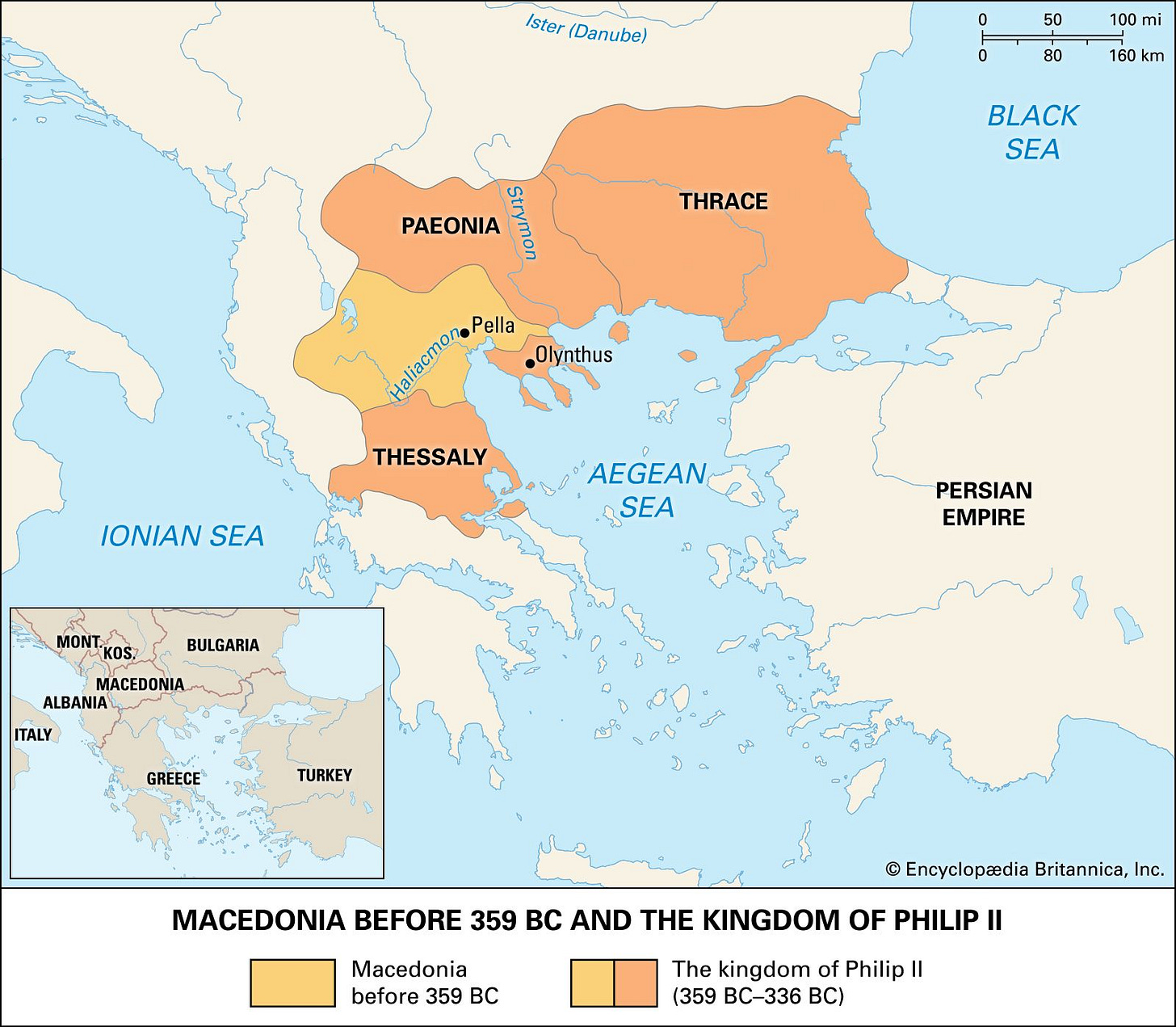

But is Kosovo and Bosnia Serbian?
Fascinating
Counter-intuitively higher Turkic admixture in parts of Aegean Turkey maybe has two sources: first 'local' Yoruks/other Turkmen groups and then transplantation from elsewhere (I'm pulling this out of my arse but could even have been Western Thrace or Thessaly) after population exchange. Thus formerly least Turkic parts of Asia Minor became most Turkic after 1923. Accident? I doubt it. Kemalist folk genomics spot-on.
Last Romanian genetic survey wen? Whom did it test? I suspect non-trivial Gypsy admixture since at least 1980s owing to forced co-habitation and social levelling, esp in last 20 years. It's visible everywhere.
Also, according to eminent based Aromanian historian Neagu Djuvara, Romanian boyars were Cumans (seems plausible but very hard to test now).
I will soon compoase an article on muh stack elaborating on grave calumnies in last two paragraphs.